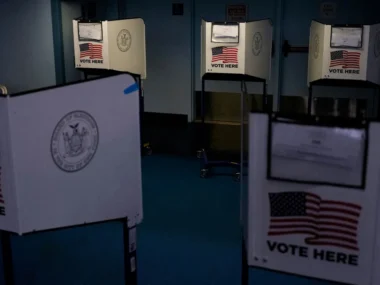In 2010, Ireland faced a severe economic crisis triggered by the Great Recession, necessitating a bailout from the European Union and International Monetary Fund totaling approximately $70 billion, equivalent to 40% of Ireland’s GDP.
Since then, Ireland’s attractive corporate tax rate has enticed major multinational tech and pharmaceutical companies to establish operations in the country, significantly boosting government revenue.
Ireland is anticipated to achieve a budget surplus of $70 billion by 2027, marking a remarkable turnaround. Now, the Irish government aims to support the expansion of its domestic businesses abroad, particularly in the United States.
Recently, Ireland’s ClonBio group, an agribusiness firm, announced plans to invest $500 million to reopen a dormant factory in Jefferson, Wisconsin, creating 1,000 jobs locally.
Ireland ranks as the ninth largest source of foreign direct investment in the US, with $295 billion invested in 2022. Over 700 Irish companies employ more than 100,000 individuals across America, facilitated in part by Enterprise Ireland, the most active national venture capital fund in Europe.
Leo Clancy, CEO of Enterprise Ireland, highlighted Ireland’s success in fostering global business awareness, attributing it to substantial foreign investment, particularly from US multinationals. He emphasized the necessity for Irish companies to think globally due to the limitations of the domestic market.
Clancy expressed optimism about future growth, particularly in exports to the US and Eurozone. He noted Irish companies’ ability to adapt to market demands, especially in sectors like green technology.
Irish companies have become significant job creators in the US, with examples like Glanbia Foods, which produces a substantial portion of cheese consumed in the US.
The strong connection between Ireland and the US is attributed to historical ties and a shared entrepreneurial spirit. Many Irish immigrants to the US have returned with valuable business experience, enriching Ireland’s business culture.
Regarding geopolitical challenges, Clancy emphasized the importance of early awareness and preparation. Ireland’s proactive approach, particularly during events like Brexit, has ensured smooth transitions for businesses.
In terms of inflation and global economic trends, Clancy expressed concern about its impact on business growth. He stressed the importance of favorable interest rates for facilitating investment and expansion, particularly for Irish companies seeking to enter or expand in the US market.
Tesla’s stock performance within the S&P 500 has been dismal, being cited as the poorest performer. Analysts predict that there is still room for its stock to decline further.
Elon Musk’s Tesla, once hailed as the epitome of the future in automaking, is now facing uncertainties about its own future.
As part of the renowned “Magnificent Seven” tech stocks, Tesla has experienced a significant downturn, emerging as the worst performer in the S&P 500 this year, with a decline exceeding 34% since January.
The narrative surrounding Tesla’s decline is well-documented. The company has grappled with safety issues, recalls, stagnant growth, and has resorted to price reductions. However, a recent report by Wells Fargo analyst Colin Langan paints an even bleaker picture.
Langan characterizes Tesla as a “growth company with no growth.” He foresees flat growth for Tesla this year, followed by a decline in 2025, fueled by intensified competition, underwhelming deliveries, and inevitable price reductions.
Adding to the gloom, UBS also revised down its forecast for Tesla last week. Analysts express growing concerns over slowing demand for electric vehicles and the increasing market share of Chinese competitors.
The settlement from the NAR might significantly reduce housing costs for numerous individuals in the United States.
The entire housing market in the US is on the brink of undergoing a transformation, as reported by my colleague Elisabeth Buchwald. The outcome of this overhaul could include a significant benefit: reduced home prices.
This potential shift is linked to a $418 million settlement announced by the National Association of Realtors on Friday with various groups of home sellers.
Pending approval from a judge, this settlement would abolish the traditional 6% commission typically paid by sellers. However, these fees are frequently factored into the listed price of the home. Consequently, experts suggest that lower commissions could translate to lower home prices.
With housing costs already elevated and contributing to inflation nationwide, curbing home prices could play a role in returning price hikes to pre-pandemic levels experienced by Americans.










